Guideline in Buying the Cheapest Air Conditioner in Nigeria
When the Nigerian heat hits, it hits hard. Whether you’re in Lagos, Abuja, or Port Harcourt, the scorching sun can make life unbearable without a reliable air conditioner (AC). But let’s face it—buying an AC in Nigeria can be a daunting task, especially when you’re on a budget. With so many brands, types, and prices out there, how do you find the cheapest air conditioner without compromising on quality?
At The Price, we understand the struggle. That’s why we’ve put together this comprehensive guide to help you navigate the market and make an informed decision. Whether you’re a first-time buyer or looking to upgrade, this article will walk you through everything you need to know about buying the cheapest air conditioner in Nigeria.
Why You Need an Air Conditioner in Nigeria
Before we dive into the nitty-gritty, let’s talk about why an AC is a must-have in Nigeria:
- Extreme Heat: Nigeria’s tropical climate means high temperatures year-round, especially during the dry season.
- Health Benefits: An AC helps reduce heat-related illnesses like heatstroke and dehydration.
- Improved Sleep: A cool room ensures better sleep, which is essential for productivity.
- Protection for Electronics: Heat can damage electronics. An AC helps maintain a stable temperature for your devices.
Now that we’ve established the importance of an AC, let’s get into the main deal—how to buy the cheapest one without breaking the bank.
Factors to Consider When Buying an Air Conditioner
1. Type of Air Conditioner
There are different types of ACs, and your choice will depend on your needs and budget:
- Window ACs: These are the most common and affordable options in Nigeria. They are installed in a window or a specially made wall opening.
- Split ACs: These consist of two units—an indoor unit and an outdoor unit. They are more expensive but quieter and more efficient.
- Portable ACs: These are ideal for small spaces and can be moved from room to room. However, they are less powerful and often more expensive.
For budget-conscious buyers, window ACs are the way to go. They are cheaper to buy and install compared to split and portable ACs.
2. Cooling Capacity (BTU)
The cooling capacity of an AC is measured in British Thermal Units (BTU). The higher the BTU, the larger the space it can cool. Here’s a quick guide:
- 6,000 BTU: Suitable for small rooms (10-15 sqm).
- 12,000 BTU: Ideal for medium-sized rooms (20-25 sqm).
- 18,000 BTU: Best for large rooms (30-35 sqm).
Choosing the right BTU is crucial. An undersized AC will struggle to cool your room, while an oversized one will consume more power than necessary.
3. Energy Efficiency
Electricity bills in Nigeria are no joke, so energy efficiency is a key factor. Look for ACs with a high Energy Efficiency Ratio (EER). The higher the EER, the less energy the AC consumes.
4. Brand and Quality
While you’re looking for the cheapest option, don’t compromise on quality. Stick to reputable brands like LG, Samsung, Haier Thermocool, Panasonic, and Gree. These brands offer durable and reliable ACs, even at lower price points.
5. Installation and Maintenance Costs
Don’t forget to factor in installation and maintenance costs. Some sellers offer free installation, while others charge extra. Regular maintenance is also essential to keep your AC running efficiently.
Where to Buy the Cheapest Air Conditioner in Nigeria
1. Online Stores
Online platforms like Jumia, Konga, and Jiji often have great deals on ACs. They also allow you to compare prices from different sellers. Look out for flash sales and discounts, especially during festive periods.
2. Local Markets
If you prefer to see the product before buying, visit local markets like Computer Village (Lagos), Alaba International Market (Lagos), or Ariaria Market (Aba). These markets offer competitive prices, but be prepared to haggle.
3. Authorized Dealers
Buying from authorized dealers ensures you get genuine products with warranties. Check the official websites of brands like Haier Thermocool or LG for a list of authorized dealers in Nigeria.
Price Range of Air Conditioners in Nigeria (2025 Update)
Here’s a breakdown of the average prices of ACs in Nigeria as of 2025:
- Window ACs: ₦80,000 – ₦200,000
- Split ACs: ₦150,000 – ₦400,000
- Portable ACs: ₦120,000 – ₦300,000
Note: Prices may vary depending on the brand, capacity, and seller.
Tips for Buying the Cheapest Air Conditioner
- Compare Prices: Don’t settle for the first option you see. Compare prices across different platforms and sellers.
- Buy During Sales: Take advantage of sales events like Black Friday, Christmas, and Independence Day.
- Consider Refurbished ACs: If you’re on a tight budget, consider buying a refurbished AC. Just make sure it comes with a warranty.
- Check for Warranty: Always buy an AC with a warranty. This protects you from defects and repairs within the warranty period.
- Read Reviews: Before making a purchase, read customer reviews to gauge the performance and reliability of the AC.
Common Mistakes to Avoid
- Ignoring Energy Efficiency: A cheap AC with low energy efficiency will cost you more in the long run due to high electricity bills.
- Overlooking Installation Costs: Some sellers offer cheap prices but charge exorbitant installation fees. Always confirm the total cost before buying.
- Buying from Unverified Sellers: Avoid buying from unverified sellers, especially online. Stick to reputable platforms and dealers.
How to Maintain Your Air Conditioner for Longevity
Buying an AC is just the first step. Proper maintenance ensures it lasts longer and performs efficiently. Here are some tips:
- Clean or Replace Filters Regularly: Dirty filters reduce airflow and efficiency. Clean them every 2-4 weeks or replace them as recommended by the manufacturer.
- Check the Coils: Evaporator and condenser coils can accumulate dirt over time. Clean them annually to maintain cooling performance.
- Inspect the Fins: Bent fins can block airflow. Use a fin comb to straighten them if necessary.
- Clear the Drainage Line: A clogged drainage line can cause water leakage. Flush the line with a mixture of water and vinegar to prevent blockages.
- Schedule Professional Servicing: Hire a technician to service your AC at least once a year. They can identify and fix issues before they escalate.
Top 5 Budget-Friendly Air Conditioner Brands in Nigeria
If you’re looking for affordable yet reliable ACs, these brands are worth considering:
- Haier Thermocool
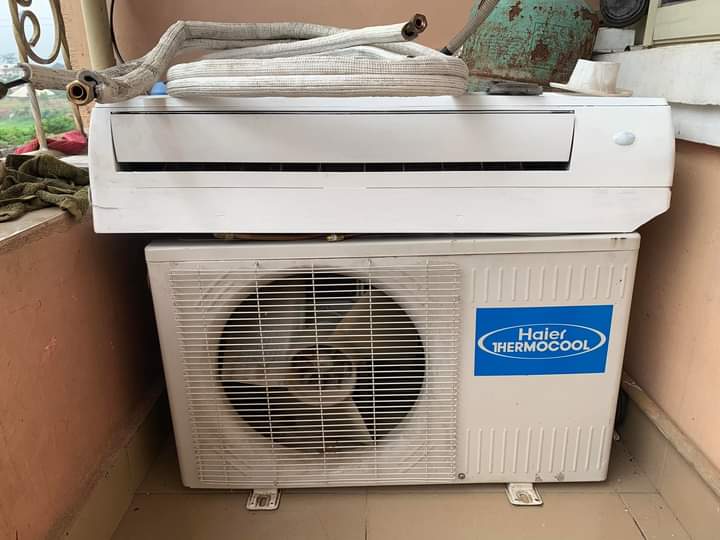
: Known for durability and affordability, Haier Thermocool offers a wide range of window and split ACs suitable for Nigerian homes.
2.LG
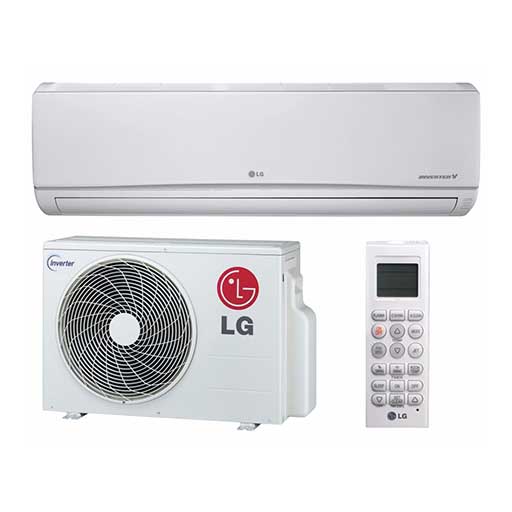
: LG combines quality and energy efficiency, making it a popular choice for budget-conscious buyers.
3.Samsung

: Samsung ACs are sleek, efficient, and come with advanced features like inverter technology.
4.Gree
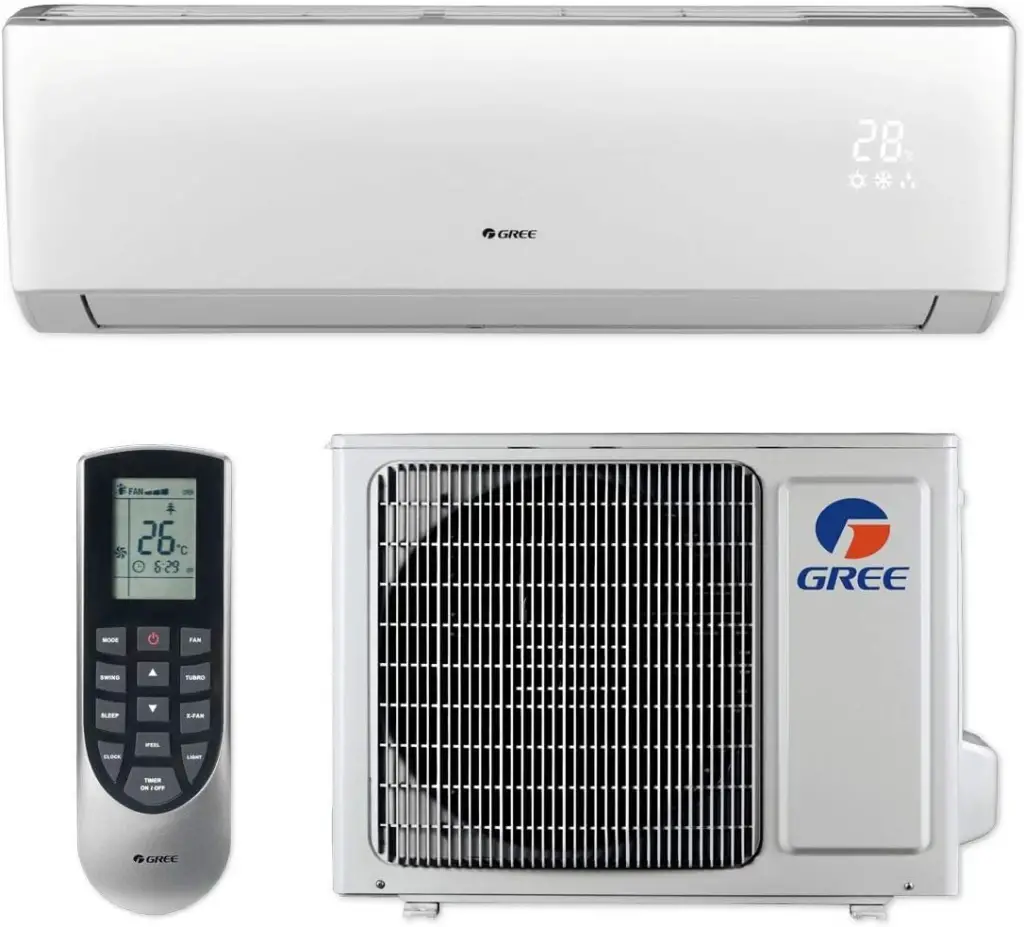
: Gree offers affordable split and window ACs with high cooling capacities.
5.Panasonic
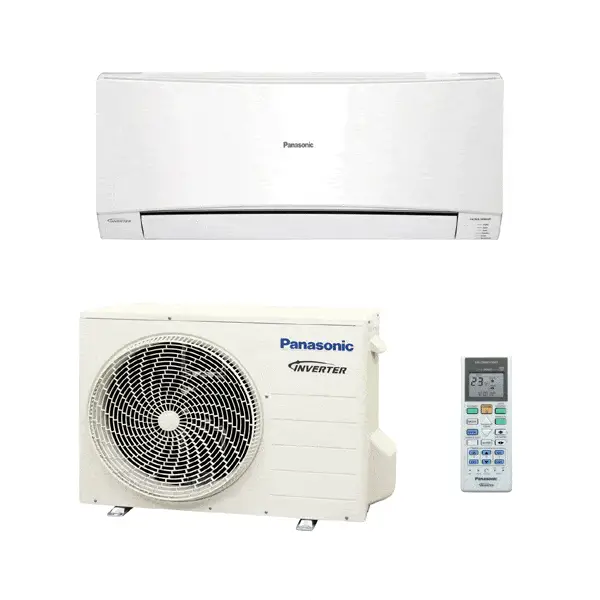
: Panasonic ACs are known for their quiet operation and energy-saving features.
Understanding Inverter vs. Non-Inverter Air Conditioners
Inverter technology is becoming increasingly popular in Nigeria. Here’s what you need to know:
- Inverter ACs: These adjust the compressor speed to maintain a consistent temperature, reducing energy consumption by up to 30-50%. They are more expensive upfront but save money on electricity bills in the long run.
- Non-Inverter ACs: These operate at a fixed speed, turning on and off to maintain the desired temperature. They are cheaper but less energy-efficient.
If you plan to use your AC frequently, an inverter model might be a better investment despite the higher initial cost.
How to Calculate the Cost of Running Your Air Conditioner
Electricity costs are a major concern for Nigerians. Here’s how to estimate the cost of running your AC:
- Check the Power Rating: Look for the AC’s power consumption in watts (W) or kilowatts (kW).
- Calculate Daily Usage: Multiply the power rating by the number of hours you use the AC daily.
- Multiply by Electricity Tariff: Multiply the result by your electricity tariff (e.g., ₦50 per kWh).
Example:
- AC Power Rating: 1.5 kW
- Daily Usage: 8 hours
- Electricity Tariff: ₦50/kWh
Daily Cost = 1.5 kW × 8 hours × ₦50 = ₦600
Monthly Cost = ₦600 × 30 = ₦18,000
This calculation helps you budget for electricity expenses and choose an energy-efficient AC.
Frequently Asked Questions (FAQs)
1. What is the lifespan of an air conditioner?
With proper maintenance, an AC can last 10-15 years.
2. Can I install an AC myself?
While it’s possible, it’s recommended to hire a professional to ensure proper installation and avoid damage.
3. Which is better: window AC or split AC?
Window ACs are cheaper and easier to install, while split ACs are quieter and more efficient. Your choice depends on your budget and needs.
4. How often should I service my AC?
At least once a year, preferably before the hot season begins.
5. What size AC do I need for my room?
Use the BTU guide mentioned earlier to determine the right size for your room.
Environmental Impact of Air Conditioners
Air conditioners contribute to global warming through:
- Energy Consumption: High energy use increases carbon emissions.
- Refrigerants: Some ACs use refrigerants that harm the ozone layer.
To reduce your environmental impact:
- Choose energy-efficient ACs with eco-friendly refrigerants.
- Use your AC sparingly and opt for natural cooling methods when possible.
Alternatives to Air Conditioners
If an AC is out of your budget, consider these alternatives:
- Fans: Ceiling fans and standing fans are cheaper and consume less electricity.
- Evaporative Coolers: These use water to cool the air and are ideal for dry climates.
- Cross-Ventilation: Open windows and doors to allow air circulation.
- Heat-Reflective Paint: Paint your roof with heat-reflective paint to reduce indoor temperatures.
Real-Life Experiences: What Nigerians Are Saying
We scoured social media platforms like X (formerly Twitter) and forums like Nairaland to gather insights from Nigerians who recently bought ACs. Here’s what they had to say:
- @Chidi_23 (X): “I bought a Haier Thermocool window AC for ₦120,000. It’s been 6 months, and it’s working perfectly. Just make sure you clean the filters regularly.”
- Ngozi (Nairaland): “I regret buying a cheap, unbranded AC. It stopped working after 3 months. Always go for trusted brands.”
- @TechBro_NG (X): “Inverter ACs are worth the investment. My electricity bill reduced by 40% after switching.”
Conclusion
Buying the cheapest air conditioner in Nigeria requires careful planning and research. By considering factors like type, cooling capacity, energy efficiency, and brand, you can find an AC that fits your budget without compromising on quality.
At The Price, we’re here to make your buying journey easier. Whether you’re looking for price comparisons, reviews, or expert advice, we’ve got you covered. Remember, the goal is to stay cool without burning a hole in your pocket.
What’s your experience with buying or using air conditioners in Nigeria? Share your thoughts in the comments below! Don’t forget to share this guide with your friends and family—it might just save them from the heat and help them make a smart purchase.

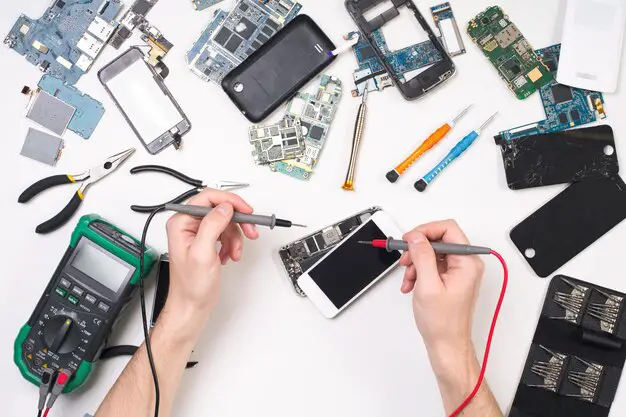

Leave a Comment